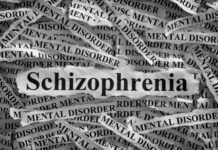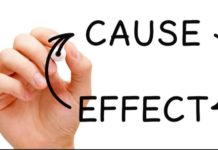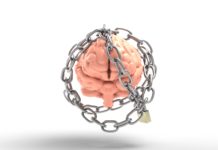Researchers Make the Case to Rename Schizophrenia
The authors outline reasons for renaming schizophrenia and the way a change can reform practice.
Exploring Alternate Pathways to Voice-Hearing
Authors propose various pathways to the phenomena of voice-hearing in clinical and nonclinical populations.
New Study Investigates Cannabidiol (CBD) for Psychosis
A new study examines the effects of CBD as an adjunct therapy to antipsychotic medication for patients diagnosed with schizophrenia.
Non-Pharmacological Interventions More Effective For Health in Schizophrenia
Review compares the effectiveness of pharmacological and non-pharmacological interventions for improving physical health outcomes in people diagnosed with schizophrenia.
Better Outcomes Off Medication for Those Recovered from First-Episode Schizophrenia
A new study has found that of 10 people who were fully recovered from their first episode of schizophrenia (FES), those not taking antipsychotics did better in terms of cognitive, social, and role functioning—and reached full recovery more quickly.
Study Identifies Psychiatric Patients at Greatest Risk of Coercion
In an effort to reduce coercion, researchers isolate associated factors including age, relationship status, location, and diagnosis.
Individuals with Psychosis Symptoms More Likely to be Victimized
Individuals diagnosed with a psychotic disorder are 4-6 times more likely than the general population to experience victimization.
What is Contributory Injustice in Psychiatry?
An article on contributory injustice describes the clinical and ethical imperative that clinicians listen to service users experiences.
Claims That Long-term Antipsychotic Use Leads to Better Outcomes are Misleading, Researchers Argue
Researchers reveal the limitations and misleading interpretations of two recent studies that claim to demonstrate that long-term antipsychotic use leads to better outcomes.
How “Schizophrenia” Helped Me Find My Soul Mate
Dating someone when you have a history of “schizophrenia” is very hard. I figured that if people left me for something as common as depression, anyone hearing my story of psychosis would give me an immediate boot. My initial efforts were awkward and lacked discretion — into each date I’d burst, willing to commit for an eternity with unconditional love.
Researchers Suggest Traumatic Experiences May Cause Psychotic Symptoms
A new study in JAMA Psychiatry investigates the relationship between trauma and psychotic experiences.
Study Explores Connections Between Diet and ‘Serious Mental Illnesses’
Study finds that individuals diagnosed with schizophrenia, bipolar disorder, and depression have diets that are more inflammatory and higher in calories.
Sociologists Interrogate Neurobiological Explanations in Criminology
A discourse analysis conducted by sociologists finds problematic assumptions and practices in the field of neurocriminology.
Who Are They to Say I Wasn’t Buddha?
I still believe I was Anne Frank in my past life, and nothing is wrong with such a belief. I am no longer Buddha, though, because they crashed my spiritual awakening when it was happening. But I go on. I deserve to be happy. I have a family to think of, I want to contribute to society on some level. I want to live. They won’t crash me. Or so I hope.
Gradual Tapering is Most Successful for Withdrawal from Antipsychotics
Mixed-Methods study explores the experiences of antipsychotic discontinuation among service users.
Do Family Interventions for Psychosis Translate in China?
Researchers explore how family interventions for psychosis might be adapted to China’s emerging integrated mental health care landscape.
Two-Thirds of Schizophrenia Patients Do Not Remit on Antipsychotics
A new analysis of antipsychotic treatment of schizophrenia (published in Schizophrenia Bulletin) has found that two-thirds of patients treated this way do not experience symptom remission.
New Review of Antipsychotics for Schizophrenia Questions Evidence for Long Term Use
A systematic review of the limited research available on the long-term effects of antipsychotics finds fewer symptoms in those off of the drugs.
New Research on Patient-Centered Deprescribing for Antipsychotics
Researchers review the risks and benefits of deprescribing from antipsychotic drugs and advocate for a patient-centered approach to tapering.
Process Oriented Approaches to Altered and Extreme States of Consciousness
When John Herold went to see a Process Work counselor, they talked about how his experience of extreme states had been disruptive in his life, but how these states also had value. The counselor compared John's experience with drinking an entire bottle of Tabasco sauce all at once. Why not instead, the counselor suggested, "try being just a little psychotic all the time?"
Study Finds First-Episode Psychosis Patients Fare Better with Vitamin D
Researchers examine the relationship between vitamin D and clinical and cognitive symptoms in first-episode psychosis.
Hallucinations Reported as Side Effect of ADHD Medication
Hallucinations and other psychotic symptoms have been reported after methylphenidate (Ritalin) treatment for ADHD.
Waiting for Gravity
Of course one wishes for an easy answer, but the things that conspire to drive a person over the edge are too numerous and varied ever to point and say, it was this one; one can never really be so certain. No one can say it wasn’t that one, or that it wasn’t really all of those together, or that, when it came my own turn for “insanity,” I wasn’t standing halfway over the edge already, waiting for gravity to kick in and for me to fall.
Study Shows Success With Reduced Antipsychotic Use
People who reduced antipsychotic use by tapering were doing just as well after five years as those who continued using the drugs.
What Are Best Practices For Psychosis And What Gets In The Way?
Research investigates clinicians’ perspectives on best care practices and the complicated realities of providing care in the face of agency limitations and mechanized interventions.

































